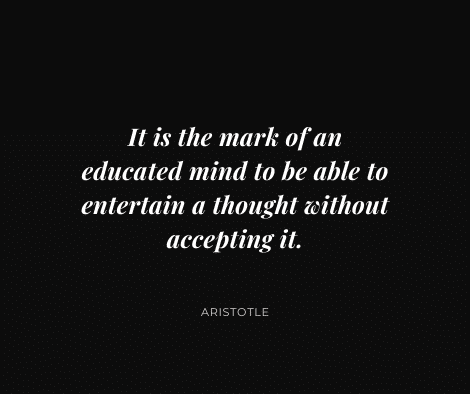It is extremely important in the current world to help our children to think critically. Towards this end, there is a lot that parents can do, as primary initial educators of their children. So, where to start?
Focus on inquiry and wonder
Curiosity is the starting point for building an approach to problems. Ask questions like, “Why is that so?” You can back this up with, “I wonder what would happen if…”
Wonder is a separate approach to critical thinking. It allows us to respect that there are things that we may not fully understand even if we inquire. Wonder allows us to appreciate.
Explain, explain, explain
Provide clear explanations for why things are. Explain around cause and effect. For example, you can answer the question, “Why do people live in apartments?” by explaining the benefit of conserving land through vertical rather than horizontal living. However, you can also add, “I wonder what the issues are with living in apartments?” In this way, explanation and wonder can lead to discussion about different aspects of issues and varying perspectives.
A significant developer of critical thinking is understanding different perspectives – even those that oppose the things that parents might believe. A sign of academic and cognitive maturity is being able to hold a point of view, argue a point of view, perhaps also argue against that point of view – in other words, critiquing your own beliefs (and not feeling threatened whilst doing so).

Instil that having an opinion is fine, but an informed one is better
Opinions can show that someone has passion, and conviction. However, an opinion of itself is not a sign of critical thinking. Informed or reasoned opinion is a sign of critical thinking. Consequently, children should be encouraged to read and to listen, in order to know more about the world. Help them to find sources that are authoritative and trusted. Authority, appropriately understood and quoted, helps to inform opinion.
Not having all the answers is ok
Role modelling openness and humility, parents can demonstrate that not having all the answers is not a weakness. Rather, being able to say to a child, “I’m not really sure – why don’t we find out together?” is a strength.
In this way you’ll be demonstrating that everything can be found out, and that sometimes the greater strength is admitting that something isn’t understood or known. Humility is not weakness.
Focus on process, not product
Hone in on process, or how things are done, rather than on product. When parents are fixated on outcomes, they lose sight of the learning that characterises the journey.
Being right may be valued by some parents but understanding how to do things is probably more valuable both in the short term and long term. If we want children to be resilient, then we need to teach them to think about thinking – not to be focused or smitten by being correct.
If we focus on the product, or the end in itself, then we lose sight of the learning on the way. This can make us blind to a number of things. It can lead to ambition that neglects friendship or teamwork. It can lead to obsession. It can also lead to extremely low self-esteem and a lack of academic risk taking. Children may become unwilling or unable to try – crippled by the pain of potentially being wrong.

Understand thinking yourself
It’s common for parents to think that the way they think is the only way to think. It should be clear to any adult that different people have different approaches to problem solving. This is no different with children. One of the greatest gifts that a parent can give themselves is to understanding thinking. This means learning the difference between deductive and inductive reasoning, understanding different types of thinking skills that arise from reasoning, understanding logic, distinguishing between creative thinking and critical thinking but also understanding how they can work together. If parents understand thinking, then they can better appreciate how their children think.
Expect critical thinking to take time
A significant hurdle for parents to overcome is understanding that critical thinking takes time. You cannot expect children to become critical thinkers by force. You cannot expect knowledge by itself to lead to understanding. You cannot expect the name of a school or the entry into a particular course or occupation to indicate that someone can think critically.
Critical thinking takes time. Exposing children to different ways of thinking, and then being still, is important. Allowing the mind with its processes of cognition to adapt to new things requires significant maturity from parents, patience, and a sense that critical thinking is not a race but rather a series of processes that are built from a young age – through life – and which increase with maturity over time and with experience.
READ ALSO: What kind of parent are you?
Link up with us!
Indian Link News website: Save our website as a bookmark
Indian Link E-Newsletter: Subscribe to our weekly e-newsletter
Indian Link Newspaper: Click here to read our e-paper
Indian Link app: Download our app from Apple’s App Store or Google Play and subscribe to the alerts
Facebook: facebook.com/IndianLinkAustralia
Twitter: @indian_link
Instagram: @indianlink
LinkedIn: linkedin.com/IndianLinkMediaGroup






